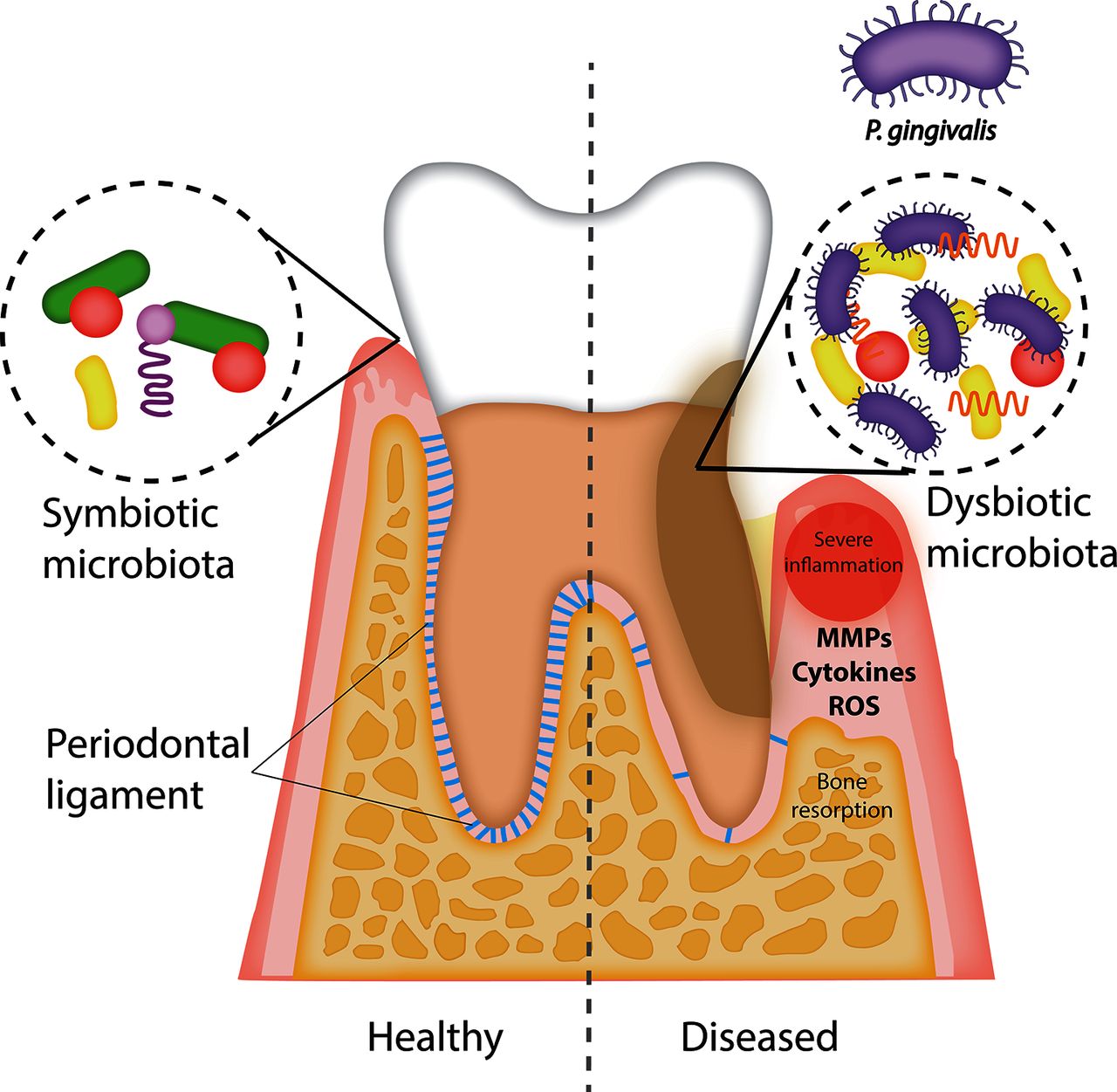Halitosis or Bad Breath
Bad breath has a significant impact both personally and socially on those who suffer from it, as well as those on the receiving end. It may be the result of poor oral hygiene or a sign of a more serious underlying condition
Dealing With Bad Breath
Regularly get a new toothbrush
Brush your teeth after you eat.
Schedule regular dental checkups.
Floss at least once a day
Brush your tongue.
Clean dentures or dental appliances
Avoid dry mouth
Adjust your diet
Halitosis or Bad Breath? Don’t forget to talk to your Preston Dentist
What causes bad breath?
Bad breath is caused by a variety of factors. In most cases, it is caused by food remaining in the mouth – on the teeth, tongue, gums, and other structures, collecting bacteria. Dead and dying bacterial cells release a sulphur compound that gives your breath an unpleasant odour. Certain foods, such as garlic and onions, contribute to breath odour. Once the food is absorbed into the bloodstream, it is transferred to the lungs, where it is exhaled. Brushing, flossing and mouthwash only mask the odour.
Periodontal (gum) disease often causes persistent bad breath or a bad taste in the mouth, and persistent bad breath may mean a sign that you have gum disease. Gum disease is caused by plaque – the sticky, often colourless, film of bacteria that constantly forms on teeth. Dry mouth may also cause bad breath due to decreased salivary flow. Saliva cleans your mouth and removes particles that may cause odour. Tobacco products cause bad breath, stain teeth, reduce your ability to taste foods and irritate your gum tissues.
Bad Breath Odours associated with
an illness;
- Diabetes – acetone, fruity
- Liver failure – sweetish, musty
- Acute rheumatic fever – acid, sweet
- Lung abscess – foul, putrefactive
- Blood dyscrasias – resembling decomposed blood
- Liver cirrhosis – resembling decayed blood
- Uraemia – ammonia or urine
- Kidney failure – ammonia or urine
- Diphtheria, dysentery, measles, pneumonia, scarlet fever, tuberculosis – extremely foul, fetid odour
Years of expertise
Happy Clients
WHAT’S BEHIND YOUR BAD BREATH?
Why is saliva so important in the fight against bad breath?
Saliva is the key ingredient in your mouth that helps keep the odor under control because it helps wash away food particles and bacteria, the primary cause of bad breath. When you sleep, however, salivary glands slow down the production of saliva, allowing the bacteria to grow inside the mouth. To alleviate “morning mouth,” brush your teeth and eat a morning meal. Morning mouth also is associated with hunger or fasting. Those who skip breakfast, beware, because the odor may reappear even if you’ve brushed your teeth.
Intra-Oral Sources of Halitosis
Critical to eliminating and controlling oral malodor is the physical disruption and removal of Volatile Sulphur Compounds and their causative agents. Since the majority of them reside on the tongue, in periodontal pockets from active gum disease, and other soft tissues of the mouth, access, and debridement of these areas is critical. Bacteria in your mouth attack your tissues, break them down, and odors (VSC gases) are released. This is why we recommend a complete dental and oral examination to accurately locate the sources of your mouth odor.
Extra-Oral Sources of Halitosis
In some cases, certain medical conditions, such as diabetes, chronic sinusitis, lung infections, digestive problems, and certain prescription medications can be additional sources of bad breath.
If one of these conditions was detected during your halitosis screening, you would be referred to your medical doctor for further evaluation.
Bad Breath Treatment
Daily brushing and flossing, and regular professional cleanings will normally take care of unpleasant breath. And don’t forget your often overlooked tongue as a culprit for bad breath. Bacterial plaque and food debris also can accumulate on the back of the tongue. The tongue’s surface is extremely rough and bacteria can accumulate easily in the cracks and crevices. Controlling periodontal disease and maintaining good oral health helps to reduce bad breath. If you have constant bad breath, make a list of the foods you eat and any medications you take. Some medications may contribute to bad breath.

Call For a Consultation:
(01772) 726932
At Lane Ends Dental Practice our dentists are experts in identifying and treating the many different causes of halitosis. We will ask you about your personal habits, diet, and medical history, as well as the history of your symptoms. After a thorough physical examination in order to assess the source of the problem, we will provide you with a treatment plan so you can be confident that your breath is fresh and pleasant to others.
DISCUSS BAD BREATH WITH YOUR DENTIST
If you have questions or concerns, talk to your dentist about your issues with bad breath. The trusted dental team at Lane Ends Dental Practice can help identify both the cause of and solution to your bad breath problems
WHY IS ORAL HYGIENE SO IMPORTANT?
Adults over 35 lose more teeth to gum diseases (periodontal disease) than from cavities. Three out of four adults are affected at some time in their life. The best way to prevent cavities and periodontal disease is by good tooth brushing and flossing techniques performed daily.
Periodontal disease and decay are both caused by bacterial plaque. Plaque is a colorless film, which sticks to your teeth at the gum line. Plaque constantly forms on your teeth. By thorough daily brushing and flossing, you can remove these germs and help prevent periodontal disease.
HOW TO BRUSH
We recommend using a soft toothbrush. Position the brush at a 45-degree angle where your gums and teeth meet. Gently move the brush in a circular motion several times using small, gentle strokes brushing the outside surfaces of your teeth. Use light pressure while putting the bristles between the teeth, but not so much pressure that you feel any discomfort. When you are done cleaning the outside surfaces of all your teeth, follow the same directions while cleaning the inside of the back teeth.
To clean the inside surfaces of the upper and lower front teeth, hold the brush vertically. Make several gentle back-and-forth strokes over each tooth. Don’t forget to gently brush the surrounding gum tissue. Next, you will clean the biting surfaces of your teeth by using short, gentle strokes. Change the position of the brush as often as necessary to reach and clean all surfaces. Try to watch yourself in the mirror to make sure you clean each surface. After you are done, rinse vigorously to remove any plaque you might have loosened while brushing.
HOW TO FLOSS
Gum disease usually appears between the teeth where your toothbrush cannot reach. Flossing is a very effective way to remove plaque from those surfaces. However, it is important to develop the proper technique. The following instructions will help you but remember it takes time and practice.
Start with a piece of floss (waxed is easier) about 18” long. Lightly wrap most of the floss around the middle finger of one hand. Wrap the rest of the floss around the middle finger of the other hand.
To clean the upper teeth, hold the floss tightly between the thumb and forefinger of each hand. Gently insert the floss tightly between the teeth using a back-and-forth motion. Do not force the floss or try to snap it into place. Bring the floss to the gum line then curve it into a C-shape against one tooth. Slide it into the space between the gum and the tooth until you feel light resistance. Move the floss up and down on the side of one tooth. Remember there are two tooth surfaces that need to be cleaned in each space. Continue to floss each side of all the upper teeth. Be careful not to cut the gum tissue between the teeth. As the floss becomes soiled, turn from one finger to the other to get a fresh section.
CARING FOR SENSITIVE TEETH
Sometimes after dental treatment, teeth are sensitive to hot and cold. This should not last long, but only if the mouth is kept clean. If the mouth is not kept clean the sensitivity will remain and could become more severe.
If your teeth are especially sensitive consult with your doctor. They may recommend a medicated toothpaste or mouth rinse made especially for sensitive teeth.
PROFESSIONAL CLEANING
Daily brushing and flossing will keep dental calculus to a minimum, but a professional cleaning by a skilled and experienced hygienist will remove calculus in places your toothbrush and floss have missed. Your visit to our office is an important part of your program to prevent gum disease. Keep your teeth for your lifetime.
Fluoride toothpaste and mouth rinses, if used in conjunction with brushing and flossing, can reduce tooth decay as much as 40%. Tartar control toothpaste will reduce tartar above the gum line, but gum disease starts below the gum line so these products have not been proven to reduce the early stage of gum disease.
Client Testimonials
I have been coming to lane ends dental practice for number of years. Every time i come i get welcome with lovely smile from the front reception. Treatment from hygienist and dentist mr Tehranian is second to none. Special thanks to Yvonne at front desk. Will highly recommand to my friends.
Friendly staff that make you feel relaxed and welcome. Treatment has been flawless . Text messages reminding me of the next appointment are a great addition. No complaints at all.
Since my first visit to Lane Ends six months ago, the team have been so friendly, helpful and professional, its a delight to visit – and that’s being said by someone who has historically had fear of the dentist. Thank you



